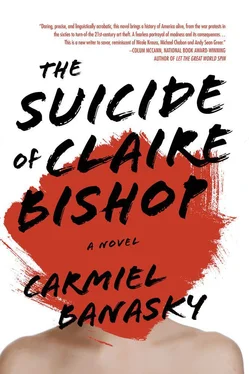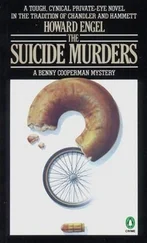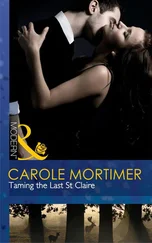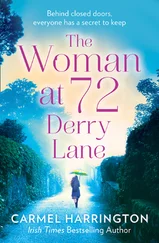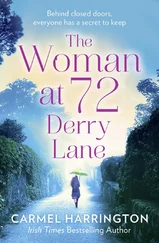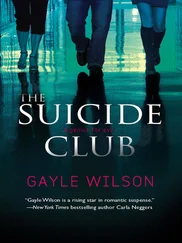From the ten-story roof, the treetops were a galaxy of bare branches with barely a hint of new leaves. Claire could almost touch them, she wanted to touch them. A world like this, where kisses like Mary’s were possible, where lips were dry and ready, where there was war and people who devoted their lives to stopping it and did so from Claire’s very own den — this was a world too beautiful for her. She didn’t belong in it, not for a moment.
To stand in love with the world, but to hate yourself in it to an equal degree — those two ends should not coexist. Yet they could, they did.
She closed her eyes and saw the painting. It was beautiful. She believed more strongly in the self trapped in the painting than she did in the self trapped in the world on this roof. The self in the painting could not die. Yet that woman was forever waiting to jump, was jumping, had jumped. Every moment of her life.
She lowered herself down and sat on the low wall, her back to the city but with most of her weight over the ledge. Her palms were sweaty. And if she let go—
Did part of her think herself extraordinary because she felt doomed? She felt a kind of losing kinship with the dead man in the subway. But he’d had witnesses. Claire would not.
Dr. King would have thought her silly and selfish, mourning herself instead of him, or others, not that he would have thought of her at all, an unextraordinary woman with a mortality problem. He knew neither death nor not-death were extraordinary. And he’d seemed to know death was coming. But Claire imagined even he must have been frightened, alone in that room. Both men — the anonymous man on the subway and the man whose name would never be forgotten — would have plaques on their gravestones of differing sizes, giving the dates of birth and death. Only a dash to sum up the in-between.
She closed her eyes. She let go of the ledge. Her hands found air. They stung with anticipation.
The door opened. And just as easily as she let go, she caught hold again.
She heard the big metal door slam shut. Who could it be? She did not open her eyes. Was it Mary? Perhaps Mary had come to save her after all.
A man cleared his throat. “Mrs. Bishop? Is that you?”
Tomasz.
Claire opened her eyes, gripping the ledge. He seemed not to notice or register the implication of her position. He said nothing about it. He didn’t run to her. He approached lazily and offered her a cigarette. They smoked urgently to fill the silence. He was always finding her in precarious situations. Or, perhaps, he simply came up to the roof for a smoke every evening of his life, and she was the one bumbling onto his stage.
“How’s your wife?” Claire said, something to say.
“Thank you for asking.”
The fact of his ignorance or indifference made her doubt what she had been about to do. Maybe she never tried, never flirted with death. And who would know? No witnesses, no one to record it for her. She didn’t have a scrape or bruise, no scar on the wrist, no emergency room, not one scrap of evidence; it may as well have not happened at all. Only the painting, the stolen painting, contained any knowledge of it — and Nicolette, wherever she was.
“Do you need help with—” Tomasz asked.
“Yes. No. There’s still a few things in storage. I don’t have much left.” She drew on her cigarette too hard and coughed. “Tomasz. Can I ask you, please. I’m not upset.” He looked at her suspiciously. She took a deep breath, tried not to seem intimidated. “Why didn’t you destroy the painting when I asked you? Years ago. I’m not upset.”
He gave a small shrug. “It was too beautiful.” He nodded and looked past her to the city. “Colder this time of year than usual.”
She leaned in closer to Tomasz, unsure if this was invited or not. “It is.”
She hated him, but Mary would find him handsome. If she were to sleep with Tomasz, might it make her feel better to pretend that Mary would be jealous? She tried to picture what Mary was doing at that moment. If she was sitting down to supper with her congressman lover. If she set the table and cooked for him and poured his wine. And then it occurred to her — Mary had only recently made forays in the kitchen. Was it in preparation of becoming that man’s housewife? Before last month, Mary had cooked nothing but overdone noodles; she called it a kitchen phobia. Had she been testing recipes for him on Claire?
She took another drag, shakily, then gagged, tried to reclaim control of her body. Her throat burned. She couldn’t swallow. Her stomach clamped. Then, holding her cigarette aloft, she vomited all over Tomasz’s shoes.
Claire started with the phonebook but came up empty. The galleries were also a dead end. She went to the Black Kettle, the café where Nicolette and Freddie had first met, and asked around. She called upon other artists, people who might have considered Nicolette a colleague. She considered searching for Nicolette’s family but remembered she’d only had her father who’d died in the war. But which war, she didn’t know.
An art collector with one gold tooth and a lolling Southern accent looked at her askance in the lobby of the Gershwin Hotel, where he’d suggested they meet; he obviously didn’t have an office. They sat close on a plush red divan. “Why do you want to know?” he asked, not wasting any time. “You writing a book?”
“No,” Claire said, tilting her face away from his sour breath. “We used to be friends.”
“Well, all I can tell you is I haven’t spoken to her since, what? Before Christmas? That would be Christmas fifty-nine. I’d given her an advance on a piece I’d commissioned but it never came through. Ran off with my wad. If you find her… Hell, don’t look at me like that. I don’t care about the money. She was a dame. We had a thing for a while. Did she ever mention me? You being friends.”
“Fifty-nine? Are you sure?” Claire asked. She must have disappeared only a short time after Claire knew her.
“I never forget a transaction with a beautiful woman. But you won’t find her. I’ve seen it before and I’ll never learn — never give an advance to an artist. She’s probably dead. Overdosed on something white.”
“Don’t say that,” Claire said.
“You need hope. That’s sweet. Someone said she changed her name and moved to India. Working as a shaman now. Imagine that.” He leaned his face in closer to Claire. She held her breath. “But take it from me, if you ever write that book: heroin sells best.”
The collector put Claire in touch with another subject of Nicolette’s, who didn’t seem to think it the least bit odd to receive her call, to suddenly be a part of a community of Subjects.
They met at the oyster lounge in Grand Central. He was sitting alone at the long cedar bar in cedar-colored lighting. When she spotted him from the doorway, she was so surprised by his good looks that all the blood rushed to her face; she could taste the crimson shade of it through her cheeks. He waved and she managed to make her way to him steadily enough. She guessed he was, like her, in his mid-forties. He wore a pinstripe suit a size too small and chain-smoked. His blond, sweptback hair was not unlike Freddie’s. He kept looking at Claire’s ears and jaw and eyebrows as he spoke, never directly in her eyes. He bounced his knee up and down to some song in his head, and seemed so excited to talk about Nicolette and his portrait that Claire could hardly get a word in edgewise. Sometimes his bouncing leg touched hers.
“She was strange, but I’ve met stranger. Right, but she was the real thing. She could be as weird as she wanted. She did a really funky painting of me. I was all covered in boils and lesions and my hair was falling out. I looked disgusting,” he said proudly. “I still have it. Hanging above the radiator.”
Читать дальше
